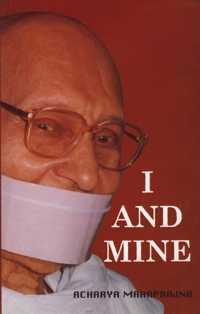

Once a man went to an anchorite and begged for some money. The anchorite said that he possessed nothing. At the man's repeated insistence the anchorite said, 'Go and bring a stone lying on the river's bank.' He went and brought the stone. The anchorite said: 'This is a parasmani (the mythical stone capable of converting iron onto gold). It can convert iron into gold.' The man felt overjoyed. He respectfully bowed his gratitude and walked back. Having walked some distance a doubt arose in his mind, 'If this stone is the best of its kind, why has the anchorite given it away? Surely, He has something better than this.' He returned to the anchorite, respectfully bowed, and said, 'Respected ascetic, I do not want this parasmani, please give me that because of which you have rejected it.'
There is no material power, which can reject a parasmani. Only spiritual power can do so as it views the parasmani of no more use than a stone. I shall not object to your treating indulgence in sex as parasmani, but this is not the best thing to do, not the best means to happiness. Once a man gets to know the real source of happiness, he rejects indulgence in sex in the same way in which the anchorite rejected the parasmani.

The sages of the Upanishads sang. Pure joy or bliss is Brahman. Had there been no bliss, our life would have been like an extinguished f l ame. Out of our body is radiating a cluster of rays. In our eyes is rippling light. What is all this? It is the expression of our joy. A whole ocean of joy is undulating in our consciousness and our mind is impatiently looking for joy outside. Our plight is exactly like that of a musk-deer. The musk is in its navel, but it keeps wandering in search of it. I am not saying that one finds no happiness in sensual pleasures. But the happiness so derived is not everlasting, is not free from the possibility of resulting in physical and mental disaster. Joy in the consciousness is self-generated and everlasting, and does not result in a feeling of inertness and remorse.

Some psychologists believe that celibacy means repressing desires and such repression leads to insanity. According to them celibacy is a negative or prohibitive activity. Therefore, they do not believe in its usefulness.
Indian thinking has been quite different from it. Indian thinkers regard celibacy as a creative power. It prohibits merely the external stimulants. Celibacy has an extensive creative power because it is the most effective means of developing and liberating the inner consciousness.
The yoga teachers speak of seven chakras (ganglions) in the human body. Among them the second one is called swadhishthan. It is a kaam chakra - sex ganglion. When it is not developed, a man indulges in sex. When we unite it with vishuddha chakra, the source of our feeling of happiness undergoes a change. It also changes if we develop aagyaa chakra or bhoo chakra . According to psychology sex is sublimated. According to science of yoga the kaam chakra undergoes ascension (vertical movement). Because of this ascension our mind establishes contact with natural bliss. No one can become a celibate after closing the doors of joy. Only by opening the doors of joy can one become a celibate.
 Acharya Mahaprajna
Acharya Mahaprajna






